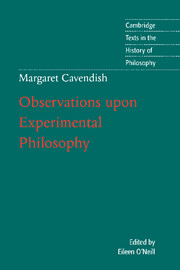Introduction
Published online by Cambridge University Press: 05 June 2012
Summary
One of the main projects that seventeenth-century European philosophers undertook was that of providing a metaphysical framework for the new mechanical science – a scientific picture of nature that eventually replaced the Aristotelian world-view. In their attempt to achieve this end, they turned to the writings of the ancient Greek and Roman philosophers, which the Renaissance humanists had rediscovered and published. Thus, Pierre Gassendi (1592–1655) rehabilitated the philosophical doctrines of the ancient atomist Epicurus. Figures as diverse as René Descartes (1596–1650), Anne Conway (1631–79), Henry More (1614–87), and Mary Astell (1666–1731) drew on Platonic doctrines in the formation of their metaphysics.
But not all philosophers were willing to overthrow Aristotelianism. Kenelm Digby (1603–65) attempted to conserve many of the Aristotelian doctrines, and to make aspects of the mechanical science compatible with these doctrines. And there were many camps of anti-Aristotelian naturalists who rejected the picture of nature as a grand machine, and who endorsed various “vitalist” views of corporeal nature as self-moving, living, and knowing. Among these thinkers were the physicians and chemists, for example, Johannes Baptista Van Helmont (1579–1644), who followed in the tradition of the vitalist naturalist Paracelsus (1493–1541); while others included practitioners of natural magic, for example, Robert Fludd (1574–1637), who were part of the hermetic and occult traditions. Finally, Joseph Glanvill (1636–80), who despaired of producing the true system of nature, and who fully endorsed neither Aristotle nor the mechanists, rehabilitated arguments from the ancient sceptics.
- Type
- Chapter
- Information
- Margaret Cavendish: Observations upon Experimental Philosophy , pp. x - xxxviPublisher: Cambridge University PressPrint publication year: 2001



